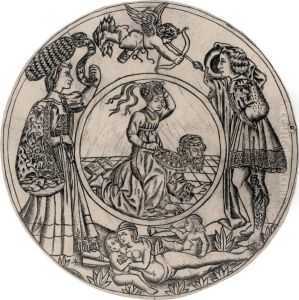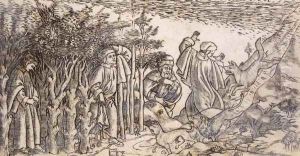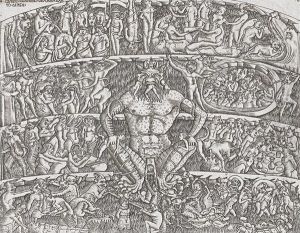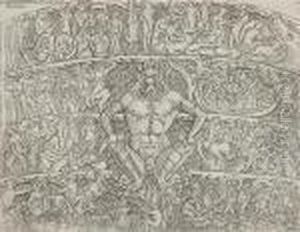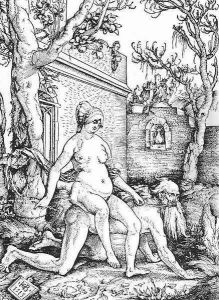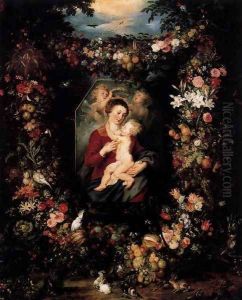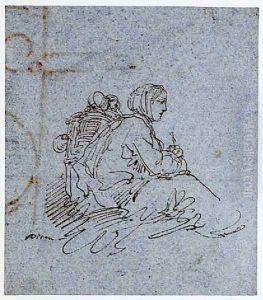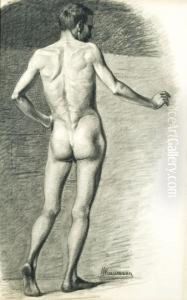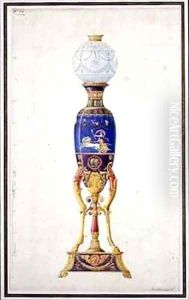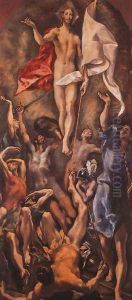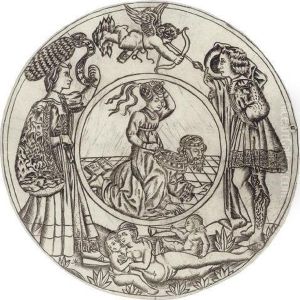





Aristotle And Phyllis, Surrounded By A Young Man And Woman With Eros, And A Reclining Nude Woman With Two Children (hind A.i.26; Bartsch 29)
-
About Reproduction
Discover the allure of art with our faithful reproduction of "Aristotle And Phyllis, Surrounded By A Young Man And Woman With Eros, And A Reclining Nude Woman With Two Children (hind A.i.26; Bartsch 29)", originally brought to life by the talented Baccio Baldini. Unlike posters or prints, our hand-painted oil painting breathes an unique sense of depth and texture into your space. Every detail, every stroke, and every texture is meticulously recreated, paying the perfect homage to Baccio Baldini and his artistic vision.
Owning this piece is more than just decoration - it's a statement of your refined taste in art. Let the vibrant colors and intricate details of this replica serve as a daily reminder of the beauty in our world. Elevate your decor and appreciate the richness of art with our replica of this masterpiece.
-
Painting Description
"Aristotle and Phyllis, Surrounded by a Young Man and Woman with Eros, and a Reclining Nude Woman with Two Children" (Hind A.I.26; Bartsch 29) is an engraving attributed to the Italian artist Baccio Baldini. The work is believed to have been created in the 15th century, during the Italian Renaissance, a period known for its artistic innovation and emphasis on classical revival. Baldini was a Florentine goldsmith and engraver, who is often associated with the circle of the famous artist and architect Sandro Botticelli.
The engraving depicts the popular medieval legend of Aristotle and Phyllis, which tells the story of the great philosopher Aristotle being seduced by Phyllis, the mistress of his student Alexander the Great. According to the tale, Phyllis rides Aristotle like a horse to demonstrate the power of a woman's influence over even the wisest of men. This scene is often interpreted as a moral lesson on the dangers of lust and the folly of intellectual pride.
In Baldini's rendition, the central figures of Aristotle and Phyllis are accompanied by additional characters, including a young man and woman with Eros, the Greek god of love, and a reclining nude woman with two children. These surrounding figures may serve to further contextualize the central narrative or provide additional allegorical or moral commentary.
Baccio Baldini's work is characterized by its fine line work and attention to detail, which are evident in this engraving. His engravings are considered to be among the earliest examples of the medium in Italy, reflecting the influence of both Northern European printmaking and the Italian artistic tradition.
The engraving is catalogued with the reference "Hind A.I.26" in Arthur Mayger Hind's catalog of early Italian engravings and "Bartsch 29" in Adam von Bartsch's "Le Peintre graveur." These references are standard in the field of art history for identifying and discussing prints.
As an artwork from the Italian Renaissance, "Aristotle and Phyllis, Surrounded by a Young Man and Woman with Eros, and a Reclining Nude Woman with Two Children" offers insight into the period's cultural and artistic preoccupations, as well as the transmission of classical and medieval stories through visual art. The engraving is a valuable piece for the study of iconography, Renaissance art, and the history of printmaking.
-
Lead Time & Shipping
When you order this oil painting replica, it typically takes 2-3 weeks to paint. If the artwork is more complex, it might need a little more time to ensure the best quality. Once it's ready, we'll send you a photo for your approval. After you give the green light, we'll ship it to you for free.
-
Return & Refund
We believe in the quality of our hand-painted oil painting reproductions, and your satisfaction is our priority. If for any reason, you are not completely satisfied with your purchase, we offer a 45-day return policy. You can return your artwork within 45 days of receipt and receive a full refund. Please note that the artwork must be returned in the original packaging and in the same condition as it was received.





